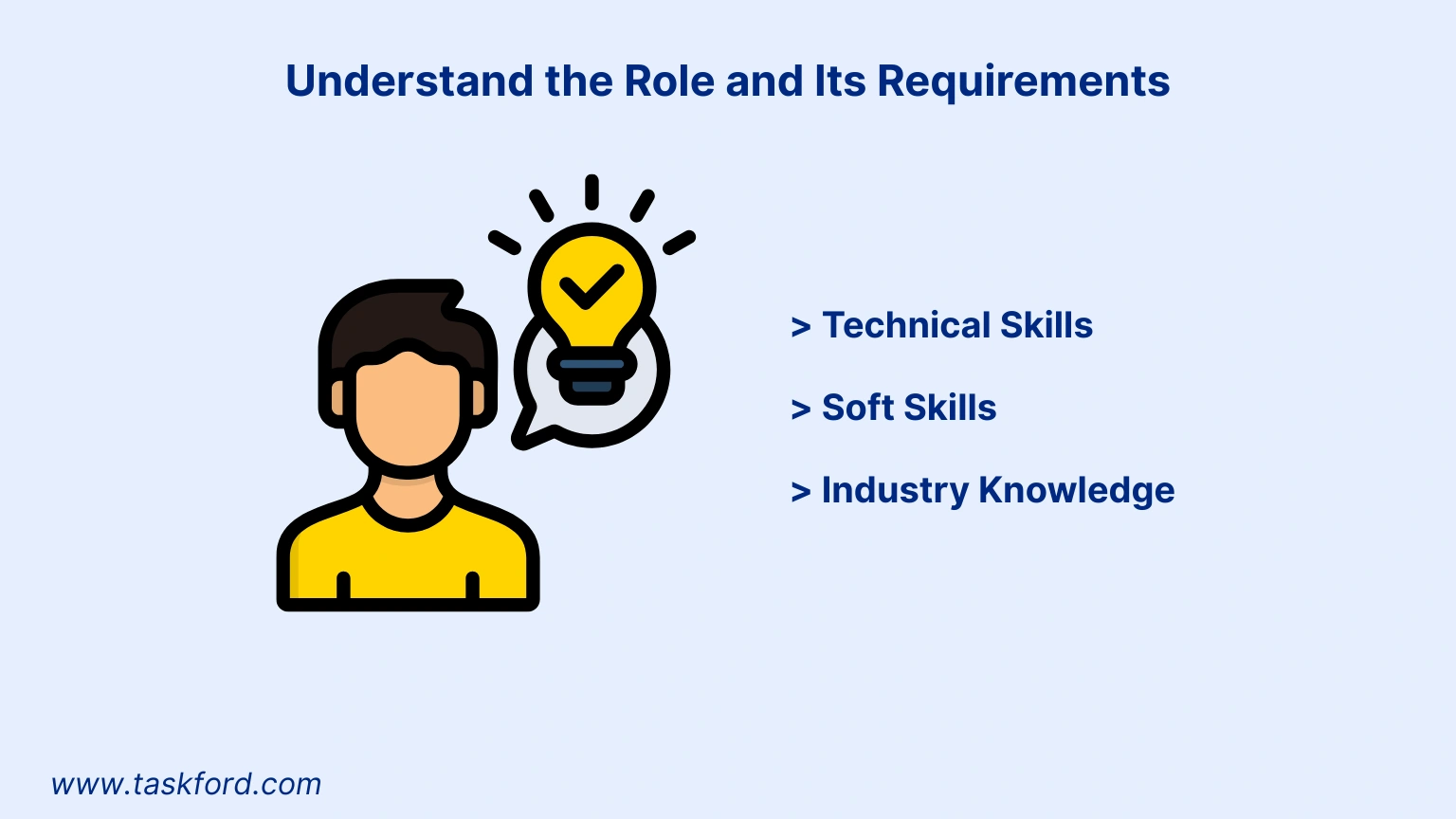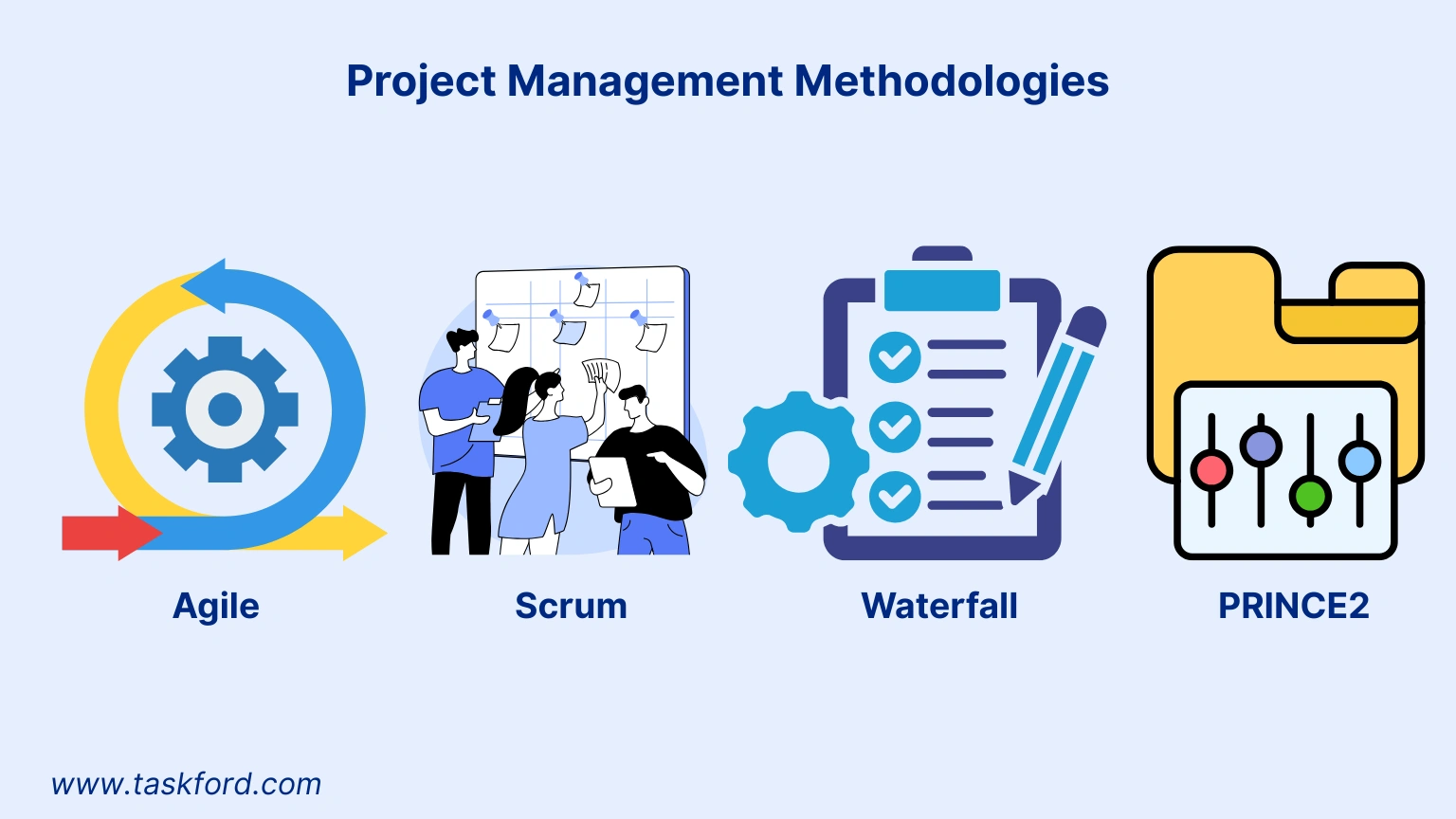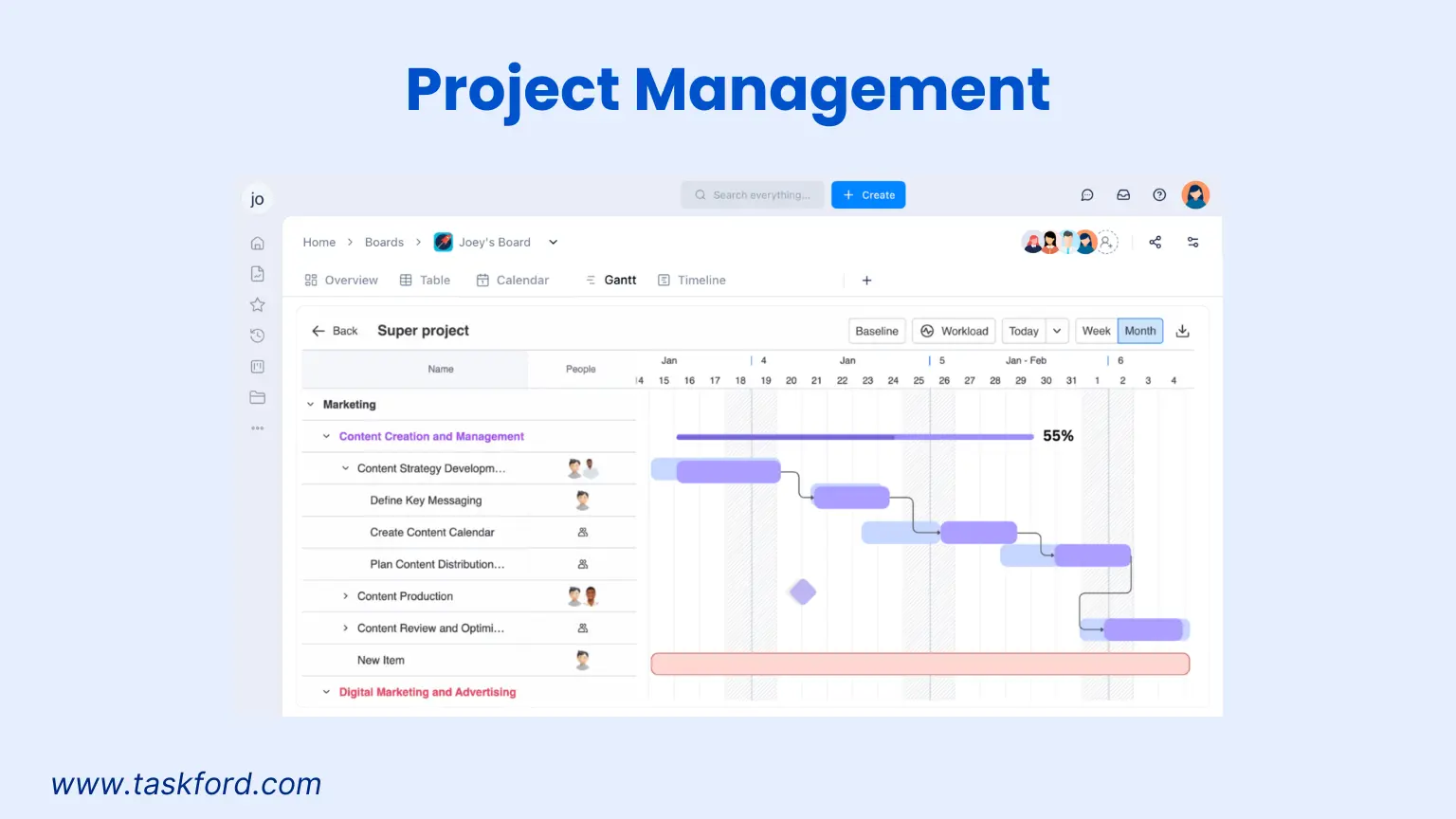How to Become a Project Manager: A Step-by-Step Guide
Learn how to become a project manager with our step-by-step guide covering essential skills, practical experience, and tips for building a successful career.
Becoming a project manager is an exciting career choice for those who thrive on organization, leadership, and delivering results. Project management is a dynamic field that spans industries like technology, construction, healthcare, and marketing. With the growing demand for skilled professionals, project manager jobs are increasingly sought after. This comprehensive guide will walk you through the steps on how to become a project manager, offering practical advice, actionable tips, and insights into the skills, certifications, and experience needed to succeed.
What Is a Project Manager?
A project manager oversees the planning, execution, and completion of projects, ensuring they meet goals, stay within budget, and are delivered on time. They act as the bridge between stakeholders, team members, and clients, managing resources, timelines, and risks. Project management requires a blend of technical knowledge, leadership, and communication skills.
Project manager jobs vary by industry, but the core responsibilities remain consistent: defining project scope, setting objectives, coordinating teams, and tracking progress. Whether you’re managing a software development project or a construction initiative, the role demands adaptability and problem-solving.
(Learn more: What Does A Project Manager Do?)
Why Pursue a Career in Project Management?
The demand for project managers is robust. According to the Project Management Institute (PMI)‘s Narrowing the Talent Gap article, the global economy will need 25 million new project professionals by 2030 due to growth in industries like IT, construction, and energy. Here are some reasons to consider this career path:
- High Earning Potential: Project manager jobs often come with competitive salaries, with median annual earnings in the U.S. around $94,000, depending on experience and industry.
- Diverse Opportunities: Project management skills are transferable across sectors, from finance to healthcare to creative industries.
- Leadership Growth: The role hones leadership, decision-making, and strategic thinking, opening doors to executive positions.
- Job Security: As businesses prioritize efficiency and project success, skilled project managers remain in demand.
Step-by-Step Guide on How to Become a Project Manager
Step 1: Understand the Role and Its Requirements

Before diving into project management, research what the role entails. Project managers need a mix of hard and soft skills, including:
- Technical Skills: Knowledge of project management methodologies like Agile, Scrum, or Waterfall, and familiarity with tools like TaskFord.
- Soft Skills: Leadership, communication, time management, and conflict resolution.
- Industry Knowledge: Understanding the specific industry you want to work in, such as IT, construction, or marketing.
(Learn more: Types of Project Managers)
Review job postings for project manager jobs to identify common requirements, such as education, certifications, or years of experience. This will help you tailor your career path.
Step 2: Earn a Relevant Education
While a degree isn’t always mandatory, most project manager jobs prefer candidates with a bachelor’s degree in fields like business administration, management, engineering, or computer science. Here’s how education plays a role:
- Bachelor’s Degree: A degree provides foundational knowledge in business, finance, or technical areas, which is valuable for project management. For example, a degree in computer science is ideal for IT project management.
- Master’s Degree (Optional): For senior roles or competitive industries, a Master’s in Business Administration (MBA) or a Master’s in Project Management can set you apart.
- Alternative Paths: If you don’t have a degree, relevant work experience or certifications can suffice, especially for entry-level project manager jobs.
Consider online courses or bootcamps focused on project management to supplement your education. Platforms like Coursera, Udemy, or LinkedIn Learning offer affordable options.
Step 3: Gain Relevant Experience
Experience is critical in project management. Employers often seek candidates with proven ability to lead projects or teams. Here’s how to build experience:
- Start in a Related Role: Begin as a project coordinator, team lead, or assistant project manager. These roles expose you to project planning, scheduling, and team coordination.
- Volunteer for Projects: If you’re in a non-project management role, volunteer to lead initiatives at work, such as organizing an event or managing a small team project.
- Internships or Apprenticeships: Look for internships in project management to gain hands-on experience and network with professionals.
Track your contributions to projects, such as meeting deadlines or resolving issues, to build a strong resume for project manager jobs.
Step 4: Learn Project Management Methodologies

Understanding project management methodologies is essential for success. Popular frameworks include:
- Agile Project Management: Focuses on flexibility and iterative progress, common in software development.
- Scrum: A subset of Agile, emphasizing short sprints and daily stand-up meetings.
- Waterfall: A linear approach where each phase is completed before moving to the next, often used in construction or manufacturing.
- PRINCE2: A process-based methodology popular in the UK and Europe, emphasizing structured project planning.
Study these methodologies through online courses, books, or workshops. Knowing when to apply each framework will make you a versatile candidate for project manager jobs.
Step 5: Obtain Certifications
Certifications validate your skills and boost your employability. Here are the most recognized project management certifications:
- Project Management Professional (PMP): Offered by PMI, the PMP is globally respected and ideal for professionals with 3-5 years of experience. It covers project planning, execution, and risk management.
- Certified Associate in Project Management (CAPM): Also from PMI, this is an entry-level certification for those new to project management.
- ScrumMaster (CSM): Offered by Scrum Alliance, this certification focuses on Agile and Scrum practices, perfect for IT or software project management.
- PRINCE2 Foundation/Practitioner: Popular in Europe, this certification emphasizes structured project management processes.
Certifications require study and passing an exam, so allocate time to prepare. Many employers prioritize certified candidates for project manager jobs.
Step 6: Master Project Management Tools

Proficiency in project management software is a must. Project management tools help you track tasks, manage budgets, and collaborate with teams. TaskFord is a comprehensive project management and resource planning platform that helps you:
- Create and assign tasks to team members.
- Track project progress with visual dashboards and Gantt charts.
- Manage budgets and timelines efficiently.
- Collaborate with team members in real time.
Practice using TaskFord on sample projects or during internships to build proficiency. Highlighting TaskFord expertise on your resume makes you a competitive candidate for project manager jobs.
Step 7: Develop Leadership and Communication Skills
Project managers lead teams, manage conflicts, and communicate with stakeholders. To excel, focus on:
- Leadership: Inspire and motivate your team, delegate tasks effectively, and foster collaboration.
- Communication: Clearly convey goals, updates, and feedback to team members and clients.
- Problem-Solving: Anticipate risks and address issues promptly to keep projects on track.
- Time Management: Prioritize tasks and manage deadlines to ensure timely delivery.
Join leadership workshops, practice public speaking, or participate in team-building activities to hone these skills.
Step 8: Build a Professional Network

Networking opens doors to project manager jobs and mentorship opportunities. Here’s how to build your network:
- Join Professional Organizations: Groups like PMI or the International Project Management Association (IPMA) offer events, webinars, and certifications.
- Attend Industry Events: Conferences, seminars, or meetups allow you to connect with experienced project managers.
- Leverage LinkedIn: Share insights about project management, connect with recruiters, and join groups related to your industry.
Networking can lead to referrals, job opportunities, or advice from seasoned professionals.
Step 9: Create a Strong Resume and Portfolio
Your resume and portfolio should highlight your project management skills and achievements. Tips for crafting them:
- Resume: Tailor it to each job, emphasizing certifications, tools, and measurable outcomes (e.g., “Managed a $500,000 project delivered on time and 10% under budget”).
- Portfolio: Include case studies of projects you’ve led, detailing your role, challenges faced, and results achieved.
- Cover Letter: Explain why you’re passionate about project management and how your skills align with the job.
Use keywords like “project management,” “project manager jobs,” and specific tools or methodologies to optimize your resume for applicant tracking systems (ATS).
Step 10: Apply for Project Manager Jobs
With education, experience, and certifications in place, start applying for project manager jobs. Here’s how to approach the job search:
- Search Job Boards: Use platforms like Indeed, LinkedIn, or Glassdoor to find openings.
- Target Industries: Apply to sectors that align with your experience, such as IT, construction, or healthcare.
- Prepare for Interviews: Be ready to discuss your experience with specific projects, methodologies, and tools. Practice answering behavioral questions like, “How did you handle a project that was behind schedule?”
Consider freelance or contract roles to gain experience and build your portfolio.
Tips for Success as a Project Manager
- Stay Organized: Use tools and systems to track tasks, deadlines, and budgets.
- Adapt to Change: Projects often face unexpected challenges, so flexibility is key.
- Continue Learning: Stay updated on industry trends, new tools, and emerging methodologies.
- Seek Feedback: Regularly ask for input from team members and stakeholders to improve your approach.
Common Challenges and How to Overcome Them
- Scope creep: Define clear project goals and get stakeholder buy-in to avoid scope changes.
- Team Conflicts: Foster open communication and mediate disputes promptly.
- Resource Constraints: Plan resource allocation carefully and negotiate for additional support if needed.
- Tight Deadlines: Prioritize tasks and communicate realistic timelines to stakeholders.
The Future of Project Management
The field of project management is evolving with technology. Trends like artificial intelligence (AI), automation, and remote work are shaping project manager jobs. AI tools can assist with task scheduling and risk analysis, while remote project management requires strong virtual collaboration skills. Staying ahead of these trends will keep you competitive.
Right now, TaskFord is all about giving you the core tools you need to manage projects effectively. But we’re also working on bringing in smart, AI-powered features to keep up with how teams are evolving.
(Learn more: 8 Must-Have Skills for AI Project Managers in 2025)
Conclusion
Becoming a project manager is a rewarding journey that combines leadership, strategy, and technical expertise. By following this step-by-step guide (gaining education, experience, certifications, and networking), you can position yourself for success in project manager jobs. The field offers diverse opportunities, competitive salaries, and the chance to make a tangible impact. Start today by researching certifications, learning tools, or applying for entry-level roles. With dedication, you’ll be leading successful projects in no time.
Learn more
- Will AI Replace Project Managers? Separating Hype from Reality in 2025’s AI Project Management Landscape
- What is Project Management: A Beginner’s Comprehensive Guide 2025
- A Day in the Life of a Project Manager: How They Bring Projects to Life
Subscribe for Expert Tips
Unlock expert insights and stay ahead with TaskFord. Sign up now to receive valuable tips, strategies, and updates directly in your inbox.